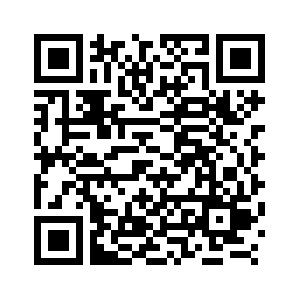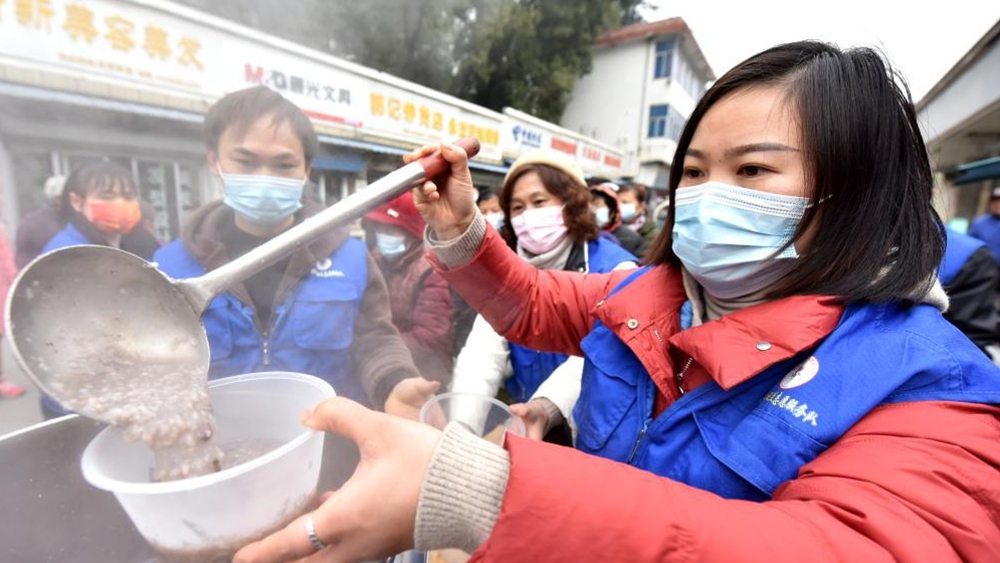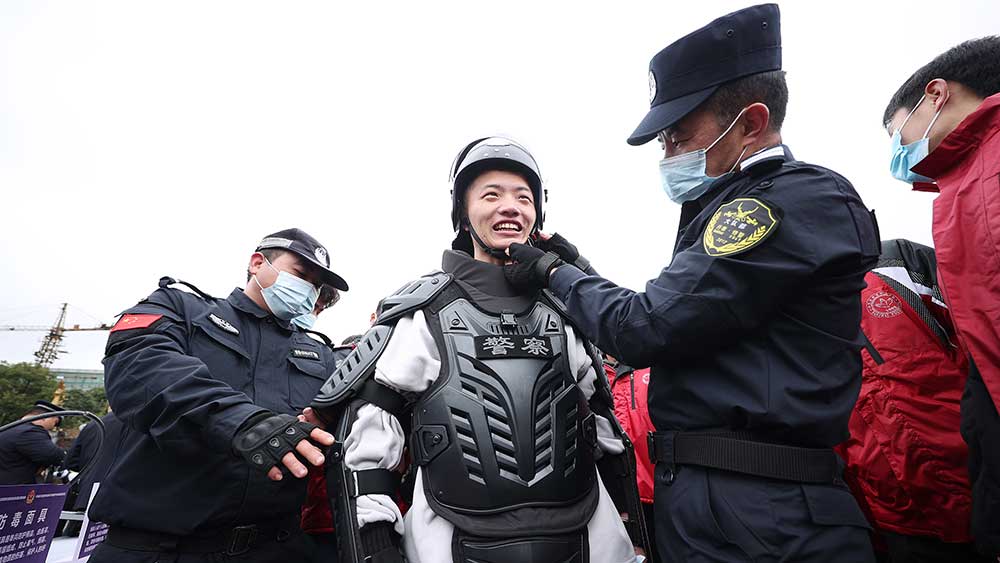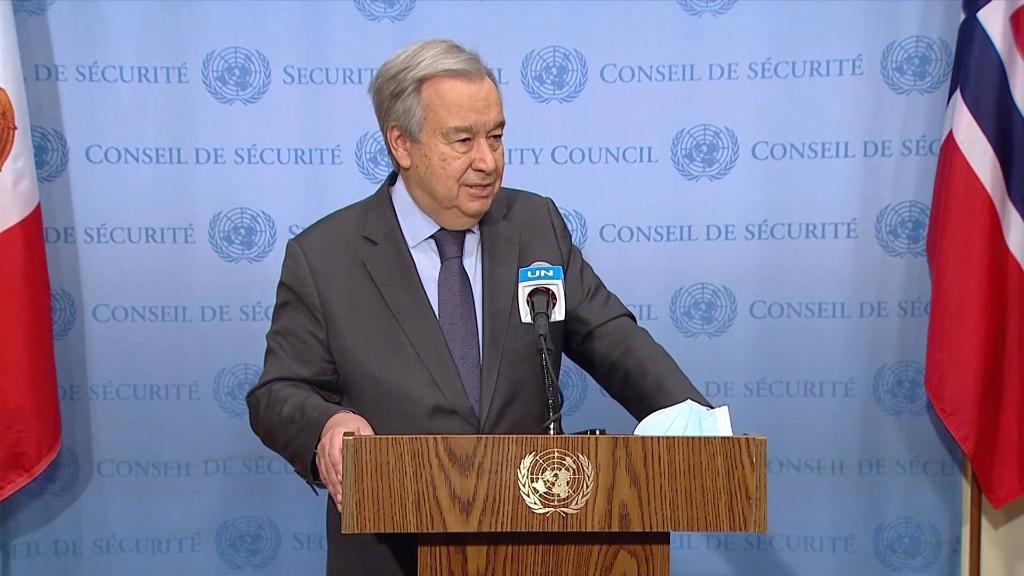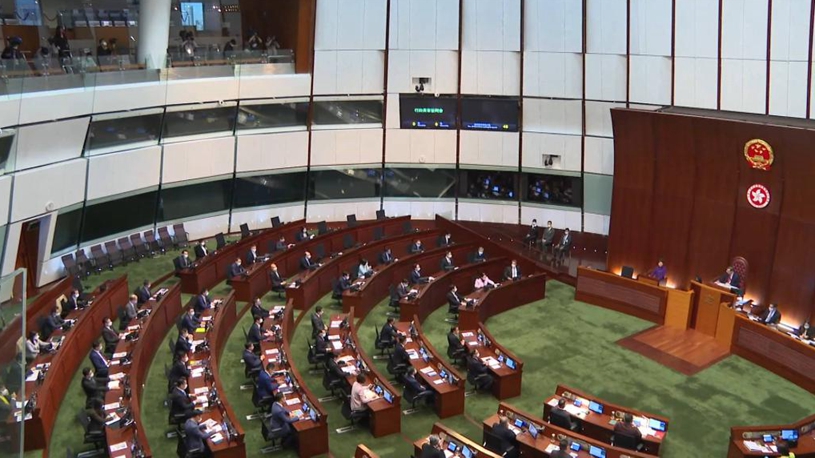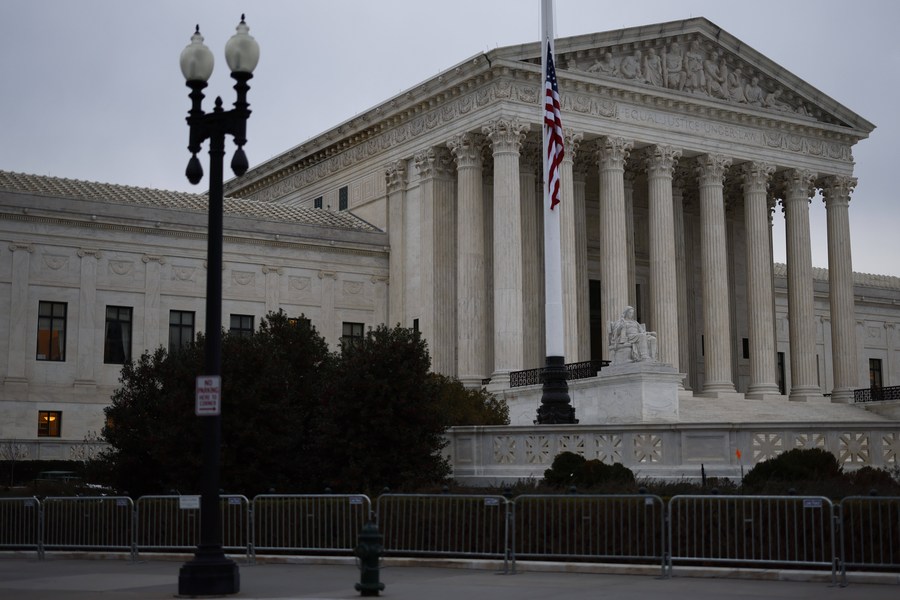
Photo taken on Jan. 13, 2022 shows the U.S. Supreme Court Building in Washington, D.C., the United States. (Photo by Ting Shen/Xinhua)
The court's decision came as COVID-19 infections linked to the highly contagious Omicron variant are increasing rapidly across the United States, and Americans, from officials, experts to the general public, are becoming intensely divided over coronavirus-related measures.
by Matthew Rusling
WASHINGTON, Jan. 14 (Xinhua) -- Amid an increasingly heated nationwide debate on anti-pandemic regulations, the U.S. Supreme Court on Thursday blocked the Joe Biden administration's vaccine-or-test mandate for large businesses.
In a 6-3 decision, the conservative-majority said the White House overstepped its authority by seeking to impose the Occupational Safety and Health Administration's (OSHA) rule requiring workers at U.S. businesses with 100 or more employees to either get vaccinated or submit a negative COVID-19 test weekly.
According to the court, Congress has not given OSHA the power to enact such a rule. "Although Congress has indisputably given OSHA the power to regulate occupational dangers, it has not given that agency the power to regulate public health more broadly," it wrote in an unsigned opinion.
"It is instead a significant encroachment on the lives -- and health -- of a vast number of employees," it added.
The mandatory vaccination measure of OSHA, which would affect 1.8 million business entities and around 84 million workers in the United States, started to take effect on Monday, but some workers were in limbo as they await a ruling of the top court.
The court's decision came as COVID-19 infections linked to the highly contagious Omicron variant are increasing rapidly across the United States, and Americans, from officials, experts to the general public, are becoming intensely divided over coronavirus-related measures.
Unsurprisingly, the ruling caused a new round of disagreement and argument in the country. Biden, in a statement issued in the wake of the ruling, said he was "disappointed that the Supreme Court has chosen to block common-sense life-saving requirements for employees at large businesses that were grounded squarely in both science and the law."
The ruling "does not stop me from using my voice as President to advocate for employers to do the right thing to protect Americans' health and economy," he said, calling on states and businesses to step up vaccination requirements to protect workers, customers and communities.
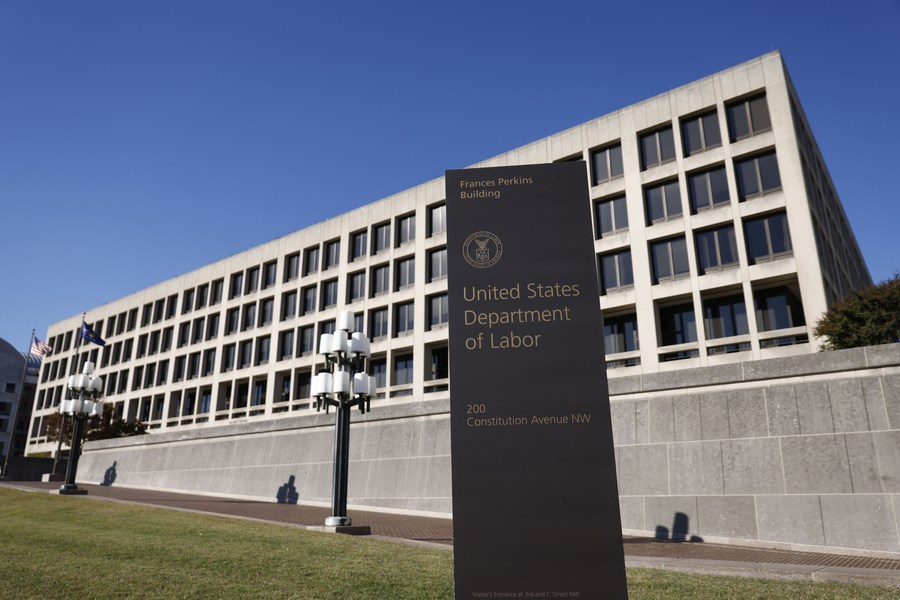
Photo taken on Nov. 8, 2021 shows the office building of the U.S. Department of Labor in Washington, D.C., the United States. (Photo by Ting Shen/Xinhua)
Labor Secretary Marty Walsh called the court's decision "a major setback" to the health and saftey of workers in the United States. Gerald Harmon, president of the American Medical Association, one of the largest doctors' groups in the country, said he was "deeply disappointed" because the court "halted one of the most effective tools" in the fight against the pandemic.
Meanwhile, the country's retail groups rejoiced at the court's decision. In a statement on Thursday, the National Retail Federation's Senior Vice President of Government Relations David French said it is "a significant victory" for employers.
The federation urged the Biden government to "discard this unlawful mandate and instead work with employers, employees and public health experts on practical ways" to increase vaccination rates and contain the spread of the virus.
At the same time, the Supreme Court, with a 6-3 vote, upheld on Thursday a vaccination requirement for health care workers at facilities that receive federal funds.
This mandate will apply to over 17 million health care workers across around 76,000 facilities that participate in the federally-funded Medicare and Medicaid programs.
Darrell West, a senior fellow of the Brookings Institution, said he believed the vaccine mandate for workers is a way to protect public health. "For many years, the United States has had mandates for polio, measles, and mumps, among other diseases," West said.
In Washington D.C. area, Kathy Atwood, a housewife in her 60s, said she believed people should be mandated to get the vaccine. Greg Aston, an auto maintenance worker in his 40s, said he does not support the onerous requirement for businesses, but expressed his hope that more people will get vaccinated to avoid the potentially deadly effects of the virus.
Although the Omicron variant has a much lower risk of hospitalization and death, the United States is witnessing a seven-day average death toll of over 1,500 in recent days, which has taken the country's total tally to nearly 850,000, data from the U.S. Centers for Disease Control and Prevention showed. ■
